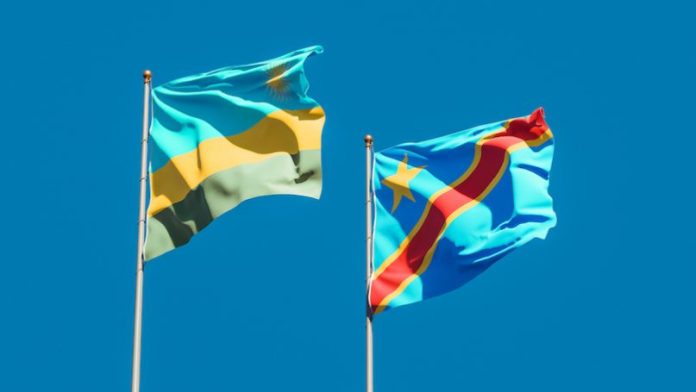Thobile Jiwulane
With the West leading the United Nations charge to bring peace to the strife-torn eastern Democratic Republic of Congo, there is no more excuse for the Rwandan President, Paul Kagame to undermine fellow African leaders to resist their efforts to end the conflict.
Kagame defied efforts by the African leaders and neighbouring countries to bring peace to the region by supporting the rebel movement M23, which is fighting to overthrow the regime of DRC’s President Felix Tshisekedi. Instead of joining other leaders to defend Tshisekedi, Kagame indicated he would rather take up arms against those countries.
He recently challenged South Africa, one of several countries that deployed their armies into the AU peacekeeping mission in the DRC, to a military battle. This was after South Africa’s President Cyril Ramaphosa accused Rwandan Defence Force members and M23 of attacking the peacekeepers. Kagame insinuated that Rwanda was ready for war if South Africa wanted war and accused the southern African country of not being in the DRC for peacekeeping.
Following the death of 14 South Africa National Defence Force soldiers in a battle with M23 rebels in South Kivu province recently, Pretoria is under pressure from the opposition parties, particularly radical leftist Economic Freedom Fighters (EFF), to withdraw the SANDF members participating in the multi-nation peacekeeping mission in DRC. But the government had refused, saying that would not only pose a risk to the security of the DRC but a withdrawal would be against South Africa’s commitment to participate in efforts to end the conflict and realised the African undertaking to ‘silence the guns’ in the African continent.
Instead of backing down, the Ramaphosa multi-party national unity government pledged to beef up its troops with at least 800 more personnel as replenishment. Troops from the South African Development Community are part of the peacekeeping mission working with the United Nations mission, MONUSCO, a multi-national force maintaining peace in the country.
Rwanda and DRC accused each other of supporting respective rebel groups that are fighting to overthrow their respective governments, but both sides deny that. Rwanda is supporting the Tutsi-dominated M23 fighting Tshisekedi.
Rwanda insisted it was merely defending itself against the Hutu-dominated rebel group, the Democratic Forces for the Liberation of Rwanda (FDLR), which is based in the neighbouring DRC. Kagame claimed Tshisekedi was arming the militia who wanted to overthrow the Kagame government in Rwanda but denied he is doing the same for M23 against Tshisekedi.
Last week, the United Nations Security Council called on Rwanda to end its backing for M23 in the eastern DRC and unconditionally withdraw its troops from the region. The Council endorsed a resolution drafted by France calling for Rwanda to respect the diplomatic solution and return to talks to end the conflict. Along with France, the United States strongly called for Rwanda and M23 to stop the fight and for M23 to pull out of Goma and other areas the rebels took over.
The stance the two Western allies took influenced the adoption of the resolution, which criticised both sides of the conflict. While the former Biden administration was seen as backing Rwanda and the rebels with an eye on the country’s mineral resources, the new Trump administration has taken a different direction and condemned them and the DRC government. The US Treasury this week also announced sanctions on Rwanda’s Minister of State for Regional Integration, Gen. (Ret) James Kaberebe and a M23 rebel leader for fuelling the war. The minister was targeted as a central figure for DRC’s support for M23.
The resolution adopted by the United Nations Security Council has given hope that, after at least a decade of war in the Great Lakes, the international community could influence peace between the warring sides. As matters stand now, there is no clear direction towards peace; different interests are pursuing agendas other than peace, hence the current escalation of the conflict. Only a commitment by all involved to achieving genuine peace in the DRC would help end the conflict, which, in turn, would help ease the ongoing humanitarian crisis in the region.


